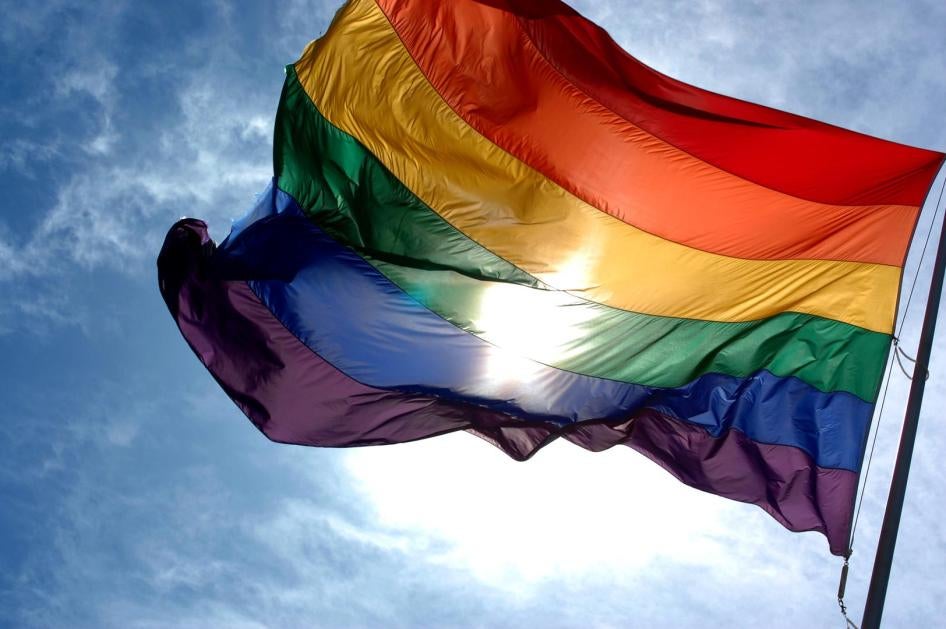On March 20, Utah officially repealed an anachronistic provision of state law that prohibited the "advocacy of homosexuality" in public schools.
The repeal is an important milestone, and will make a huge difference for Utah's youth. But in Alabama and at least six other states, similar laws restricting the discussion or "promotion" of homosexuality - or "no promo homo" laws - remain on the books.
Alabama law currently requires public school course materials related to sexuality education to include an "emphasis, in a factual manner and from a public health perspective, that homosexuality is not a lifestyle acceptable to the general public and that homosexual conduct is a criminal offense under the laws of the state."
Alabama's criminal law against same-sex conduct has been unenforceable since the Supreme Court invalidated it in 2003. But the no promo homo law remains in place, sending degrading and misleading signals to students and teachers alike.
As Human Rights Watch has documented, laws like Alabama's have terrible consequences for lesbian, gay, bisexual, and transgender (LGBT) kids in schools. Last spring, I traveled to Alabama to interview students, parents, teachers, and administrators about LGBT issues in schools, including the impact of these laws.
The most glaring effect is that they keep students from getting factual, accurate information about LGBT topics. In sexuality education, they prevent teachers from making lessons LGBT-inclusive and ensuring that all students know basic facts about their bodies and how to stay safe and healthy. With nowhere to turn for accurate information, students rely on friends, social media, or even pornography for sex education.
Because the laws are so broadly worded, school personnel often assume that they stretch far beyond sexuality education. Students told me that teachers refused to talk about LGBT issues in government, psychology, literature, and other subjects where they might naturally arise. Teachers told me how difficult it was to prepare students for life in a diverse society when they couldn't share even basic information about LGBT topics without risking backlash from parents or administrators armed with the law.
Beyond lesson planning, the people I talked with described other worrying effects of these laws. Students told me how isolating it was to be in schools where they regularly heard homophobic and transphobic slurs but rarely heard adults counter those messages or say anything positive about LGBT people. Teachers said that the fear of running afoul of these laws kept them from intervening in bullying and harassment, and prevented them from voicing support or reassuring LGBT students that there was nothing wrong with them.
Despite the clear evidence of the harm these laws generate, efforts to repeal them have largely failed. Representative Patricia Todd has repeatedly attempted to repeal Alabama's discriminatory provision, but even this simple fix has failed to gain traction in the legislature.
In Utah, it took a lawsuit to make lawmakers and advocacy groups take a hard look at the statute and its effects. Last year, the organization Equality Utah and three students sued the state board of education and school districts, making the case that the law was discriminatory and restrained freedom of speech.
When the legislature reconvened, lawmakers quickly moved to repeal the law, declaring they wouldn't leave it up to the courts but would fix the problems in the law themselves. The effort garnered broad bipartisan support, sailing through the state legislature with a 68-1 vote in the House and 27-1 vote in the Senate. Even conservative groups supported the bill, noting that it made sexuality education and the values it teaches uniform for all the state's youth.
It shouldn't take the threat of litigation for lawmakers in Alabama to do the right thing. The state's no promo homo law is discriminatory and it does real harm to youth who already face bullying and isolation in school. Lawmakers who want to provide the best education to all students should take note of what's proven possible in Utah, and have the courage to stand up for inclusivity and reason in Alabama.








